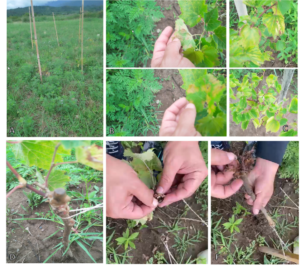Project “Sustainable management of grape genetic resources in Abkhazia”: Mission March and July 2023 by Jean-Philippe Roby and Guilherme Martins (viticulture and oenology experts) for the FAO in Abkhazia
Mission in March:
Jean-Philippe had an intense program of technical visits. On March 21, he visited two vineyards in Kutol and Gudauta, where he met agronomists to assess their practices.
Focus on questions :
– Terroir potential
– Adaptation of planting material, particularly rootstocks
– Training system: industrial wines, need for mechanization
– Pruning system: overloading, unbalanced vines.
The 03/22 and 03/23 were dedicated to training at the Wines and Beverages of Abkhazia winery, on the training system, terroir and pruning. Very positive point: lots of questions, very interested people: good exchange.
The last day was a tasting of Georgian wines in Tbilisi with professionals, Javier Sanz Alvarez (FAO) and the French ambassador.
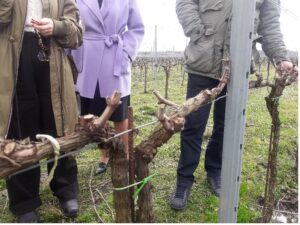
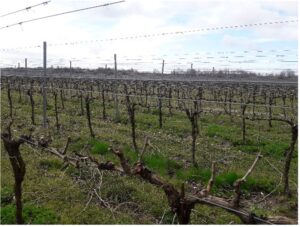
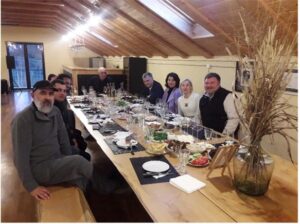
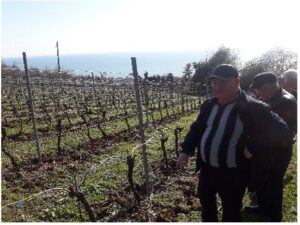
Mission in July:
This is the second time Guilherme Martins has visited the territory and worked with the AVA (Abkhazian wine association) and the FAO office in Abkhazia.
This mission consisted of 2 days (10/07 and 11/07) of training plus 2 days of visits (12/07 and 13/07).
The aim of the mission was i) to train staff and other growers in viticulture, ii) to provide technical advice to local growers, iii) to complete the inventory of equipment needed for the experimental winery, iv) to monitor the experimental plot of rootstocks and endemic grape varieties. Produce a written report including comments and advice.
Experimental plot
The experimental plot where the endemic grape varieties and rootstock collection were planted was protected by a wooden and wire fence on one side of the plot and by a large pit on the other. This prevented the intrusion of cows or other large animals. One possible reason for the state of the experimental vineyard is the transplanting of the Primorsky plot and the stress associated with waterlogging the new plot. This operation may have created severe abiotic stress on the vines, with a deleterious impact on plant health.
General remarks on the visits:
The young generation of new winemakers and wine producers is aware of the challenges facing the wine sector and is making huge efforts to align themselves with the most modern practices and equipment. They want to explore typicity and improve wine quality. They feel that the isolation caused by the country’s political situation is an obstacle to learning and acquiring new skills and technologies. There is a great need for further training in oenology.
